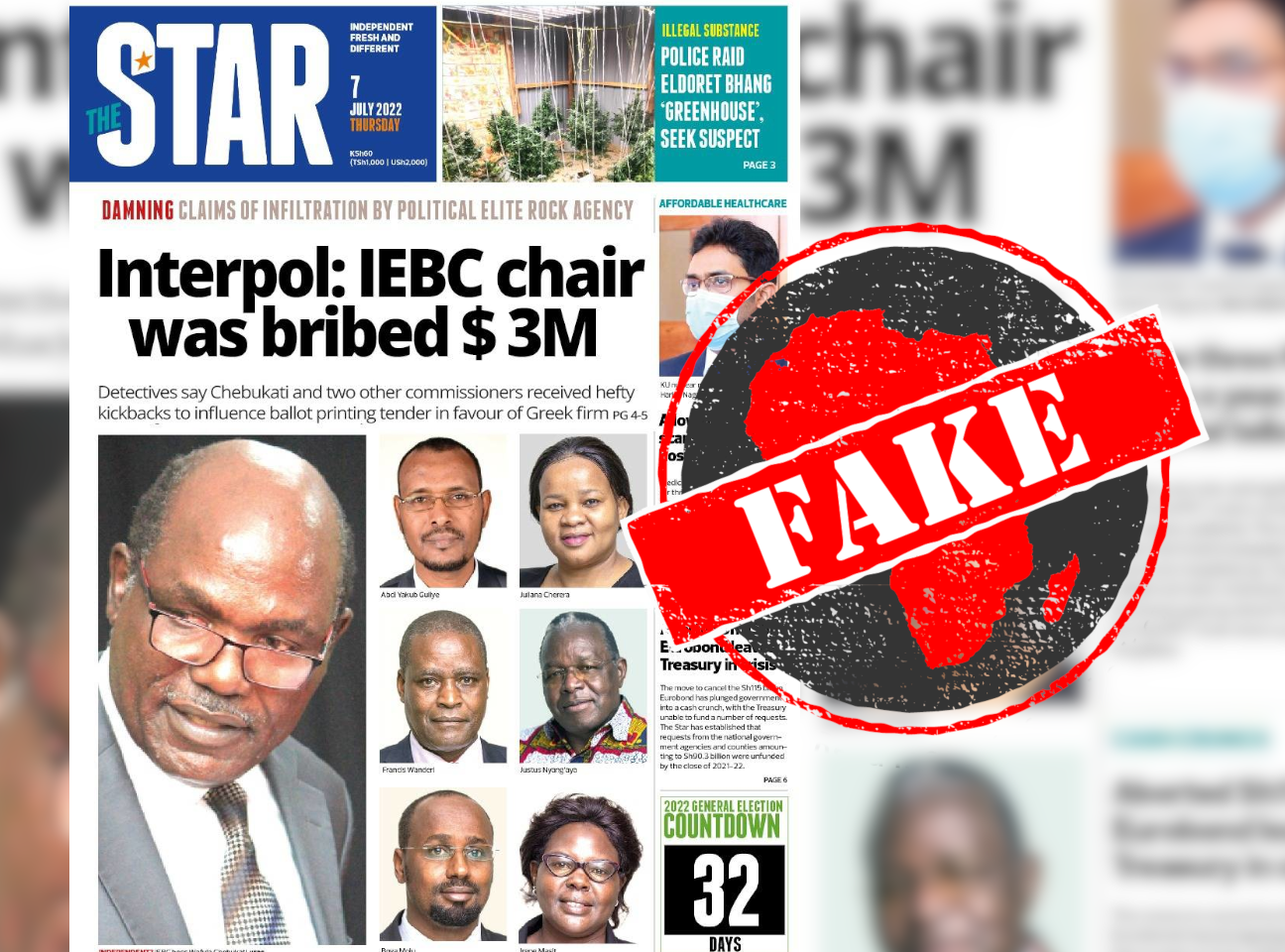“Interpol: IEBC chair was bribed $ 3M,” reads the headline on what seems to be the front page of the 7 July 2022 issue of the Star, a Kenyan newspaper, circulating on Facebook.
The page shows photos of Independent Electoral and Boundaries Commission (IEBC) chair Wafula Chebukati, vice chair Juliana Cherera and commissioners Abdi Yakub Guliye, Francis Wanderi, Justus Nyang’aya, Boya Molu and Irene Masit.
Text below the headline reads: “Detectives say Chebukati and two other commissioners received hefty kickbacks to influence ballot printing tender in favour of Greek firm.”
The page appeared online after local media reported that the Azimio la Umoja coalition had written to IEBC about what it claimed was senator Moses Wetangula’s links to Inform P Lykos SA, the Greek firm appointed to print ballots for the 9 August elections.
The Azimio coalition is led by presidential candidate Raila Odinga.
Wetangula is leader of Ford Kenya, one of the parties in the rival Kenya Kwanza alliance. It in turn is headed by current deputy president William Ruto, the other main contender seeking to succeed president Uhuru Kenyatta in the elections.
Interpol is the international police organisation, which has 195 member countries.
The front page has been posted here, here, here, here and here. But is it legit?

‘Treat it as fake’
There have been no credible news reports of Interpol announcing that Chebukati had received a US$3 million bribe. And there is no such statement on the organisation’s website, Facebook and Twitter pages.
The Star usually posts its front pages on its social media pages. We checked and found the 7 July edition, posted the day before.
Here the headline reads: “Why IEBC chiefs are under siege.” The summary adds: “Raila says no election without complementary manual voter register.”
The version circulating on Facebook has been altered.
On 7 July, the Star posted the doctored page on Facebook, stamped “FAKE”.
“FAKE NEWS ALERT: This is not the true version of our July 7, 2022 cover page. Treat it as FAKE,” it wrote.
Republish our content for free
For publishers: what to do if your post is rated false
A fact-checker has rated your Facebook or Instagram post as “false”, “altered”, “partly false” or “missing context”. This could have serious consequences. What do you do?
Click on our guide for the steps you should follow.
Publishers guideAfrica Check teams up with Facebook
Africa Check is a partner in Meta's third-party fact-checking programme to help stop the spread of false information on social media.
The content we rate as “false” will be downgraded on Facebook and Instagram. This means fewer people will see it.
You can also help identify false information on Facebook. This guide explains how.





Add new comment